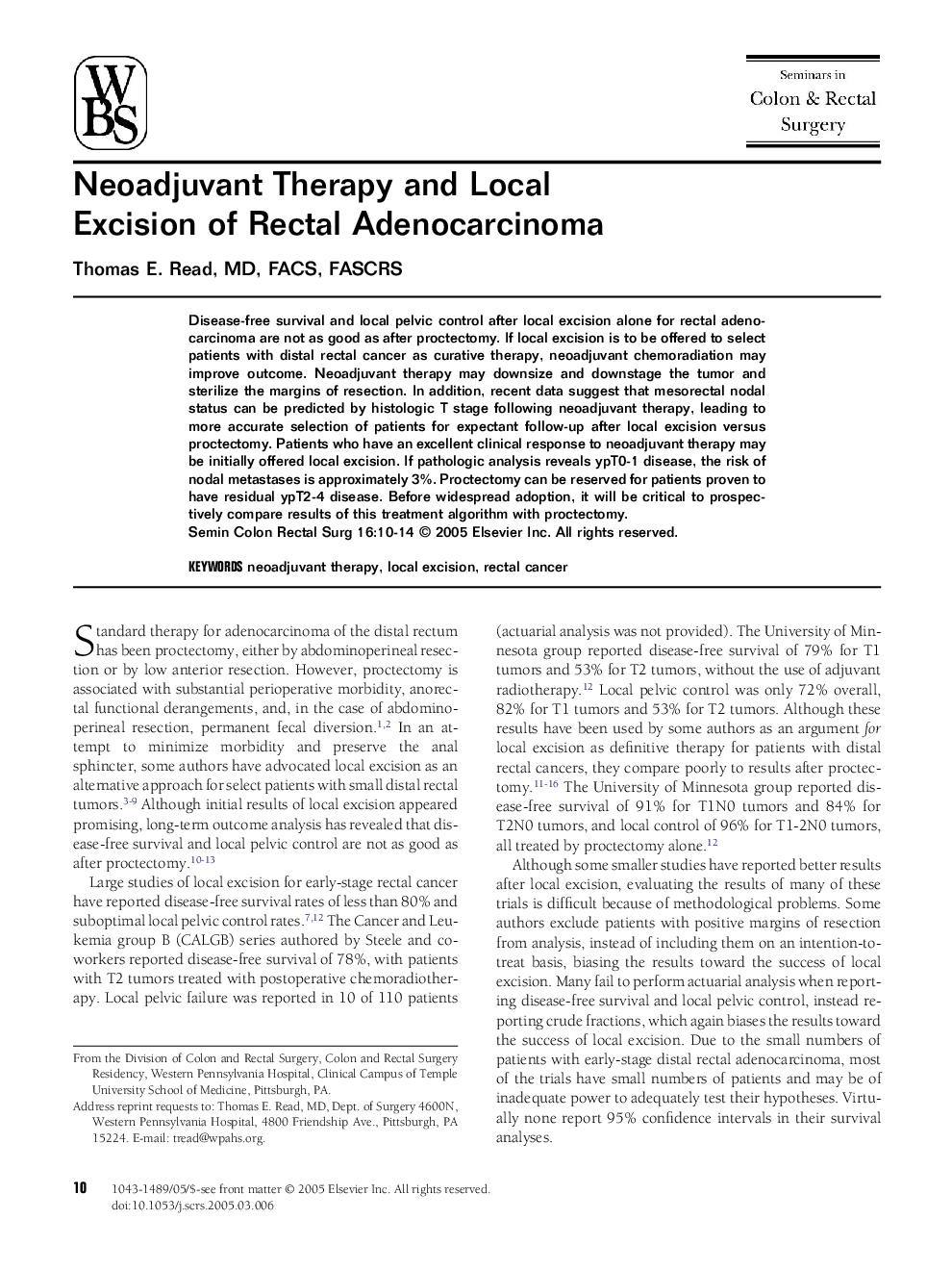| Article ID | Journal | Published Year | Pages | File Type |
|---|---|---|---|---|
| 9256539 | Seminars in Colon and Rectal Surgery | 2005 | 5 Pages |
Abstract
Disease-free survival and local pelvic control after local excision alone for rectal adenocarcinoma are not as good as after proctectomy. If local excision is to be offered to select patients with distal rectal cancer as curative therapy, neoadjuvant chemoradiation may improve outcome. Neoadjuvant therapy may downsize and downstage the tumor and sterilize the margins of resection. In addition, recent data suggest that mesorectal nodal status can be predicted by histologic T stage following neoadjuvant therapy, leading to more accurate selection of patients for expectant follow-up after local excision versus proctectomy. Patients who have an excellent clinical response to neoadjuvant therapy may be initially offered local excision. If pathologic analysis reveals ypT0-1 disease, the risk of nodal metastases is approximately 3%. Proctectomy can be reserved for patients proven to have residual ypT2-4 disease. Before widespread adoption, it will be critical to prospectively compare results of this treatment algorithm with proctectomy.
Related Topics
Health Sciences
Medicine and Dentistry
Gastroenterology
Authors
Thomas E. (FACS, FASCRS),
